לעילוי נשמת אמי מורתי מרת אלקה בת ר׳ צבי ע’’ה
The following is written in memory of my mother, Mrs. Elka Balbin a”h on the occasion of her second Yohr Tzeit, כ”ט שבט.
I miss her incessantly, and not a day goes by without reflecting on her as my biggest supporter—a constant force of positivity and giving. She was a מעיין חי— a living spring—who doled out and infused us with love with every interaction.
During the first year, there was a period during the pandemic, when the Shules were closed, and I could not personally recite קדיש. Like many in this situation, this was disturbing. I looked here and there to make sense of the situation and to see what could be done to “compensate”. I had some ideas and rang מורי ורבי רב שכטר שליט”א, expressing my angst. רב שכטר responded with a comforting thought.
“What are you concerned about? Hashem asks us to follow the Halacha, and He has His ways. We say קדיש for Aliyas HaNeshama, to raise the level of the Neshama and to give a זכות to the נפטרת. Your mother was clearly a type of Neshama who didn’t need such “heavy lifting” and the fact that you couldn’t say קדיש for some time, no doubt had no negative effect above.”
He didn’t know my mother, but his comment was entirely apt.
Surely, everyone visits the בית עולם?
At first glance, based on mimetic tradition, people clearly do go to the בית עולם and visit the graves of their relatives. Rabbi Dr. Haym Soloveitchik famously wrote an important essay (with a recent follow-up, which is on my seemingly ever-growing “to be read” list) about the importance of mimetic tradition. It would, therefore, appear to be an open and shut case. Ironically, the mimetic tradition of the Soloveitchik family was not to visit the dearly departed at the בית עולם. That mimetic tradition can be traced back to the Vilna Gaon, who was against the practice of visiting the dead at their resting place. The Gaon wrote a letter to his wife (some have claimed this was specifically to women, though the practice of his students does not support that claim) stating:
“ותישמר שלא תלך לבית הקברות כלל וכלל“
Be careful. Do not go to the Cemetery, ever.
אגרות הגר”א ט
Indeed, Rabbi Dr. Soloveitchik’s illustrious father, the Rav זצ’ל, wrote:
“The Gaon of Vilna, R. Joseph Dov Soloveitchik, his son R. Hayyim, his grandson, R. Moshe, R. Elijah Pruzena [Feinstein] never visited cemeteries and never prostrated themselves upon the graves of their ancestors. The memory of death would have distracted them from their intensive efforts to study the Torah.”
Halachic Man (page 30)
On both sides of the Rav’s family: Soloveitchik and Feinstein, there was no tradition to visit the בית הקברות. There are two things of note in this statement of the Rav.
- He describes two separate categories: (a) visiting a cemetery and (b) prostrating upon a grave at a cemetery
- He provides a reason for not visiting.
I think both of these points are noteworthy in the context of this ensuing discussion. Are there some who visit (perhaps more than four Amos from a grave) but do not prostrate? Is there a problem for a simpler person, who is not as intense with their Torah studies, to visit the cemetery? I do not know the answer to these questions, though they can be interpolated into the analysis.
Interestingly, the Rav found this restriction exceedingly difficult to sustain once his wife passed away, and felt it necessary to visit her grave in West Roxbury, Massachusetts, admitting to breaking with his family tradition. This was not automatic: the Rav kept his Brisker family traditions, zealously.
It would perhaps be intellectually lazy to assume that the reason one ought not to visit a cemetery is because of the frequency of pervasive metaphysical קליפות – impure forces of Halachic Tumah – at a cemetery. It would appear that if one kept four Amos (about two meters or 6.5 feet) away from an actual grave (as we Cohanim do anyway) then a concern of Tumah impurity is not germane. Therefore, if Tumah was the underlying reason for avoiding the cemetery, one could qualify the advice by saying “You may visit but don’t get too close”
I have often wondered whether a Cohen needs to wash his hands when leaving the בות עולם given that he doesn’t approach within the four Amos. (I found that both the Pri Megadim, in his Eshel Avraham 21, states that in such a circumstance a Cohen would not need to wash, see also the Chayyei Adam in 135:25)
The Gemara in Brachos 3b states that it is forbidden to say any Dvar Torah near a grave. This is codified by the Rambam (הל’ אבל פ”יג ה”ט) . Tosfos (ב”ק טז:, ד”ה שהושיבו) explains that this is okay as long as it is at a distance of four Amos. The Shulchan Aruch, however, does permit it even within four Amos (יו”ד סי’ שד”מ סעיף י”ז). Some Acharonim were careful nonetheless and distanced themselves by four Amos. Indeed, the Shulchan Aruch itself states (and is supported by the Shach (סי’ שס”ז ס”ק ג’)
שאחר שנגמר סתימת הקבר נעפר… מרחיקין מעט מבית הקברות ואומרים קדיש
After the burial one moves away a little from the the cemetery (!) and says Kaddish
יו”ד שע”ו סעיף ד’
R’ Chaim Vital (1542-1620) quotes his teacher the AriZal (also recorded by the Magen Avraham (או”ח סוף סי’ תקנ”ט))
ותמיד צריך להיות רחוק ד’ אמות מן הקברות
One should always be at least four Amos from a grave
שערי רוח הקודש, תיקון י”ב
Leaning on and/or touching the gravesite/Matzeyva would possibly be considered akin to prostrating, though I hasten to add that this is not necessarily so, especially outside of Israel, where the dead are buried in a coffin. I won’t go into detail here, but note that there is a Halachic question whether טומאה בוקעת – Tumah escapes upwards – when there is a gap within the structure of a coffin. I know of at least one local Rabbi who is a Cohen who does approach the tombstone, based on this question. In addition, there is a question of whether something buried deeper than Ten Tefachim is in a separate רשות, but this beyond of the scope of this post.
Tumah/Impurity, though, was seemingly not the source for the practice of the Vilna Gaon and his family, and those who follow the Brisker tradition on this (like מורי ורבי ר׳ שכטר שליט”א). As is well known, rulings of the Rambam are often a reason to adopt a stricture for those whose mimetic tradition derives from the practices of the Vilna Gaon.
The position of the Rambam
It appears then that the source for that tradition is a lesser-known statement by the Rambam in הלכות אבל (which curiously is inserted in the ספר שופטים of the Rambam’s משנה תורה)
והצדיקים אין בונים להם נפש על קברותיהם …ולא יפנה אדם לבקר הקברות
רמב”ם הלכות אבל ד: ד
Rabbi Touger’s excellent translation of the Rambam renders this
Markings are made on the graves. A tombstone is placed on the grave. For the righteous, by contrast, a tombstone is not placed, because their words will cause them to be remembered; a person will not need to visit in the cemeteries.
Reference
According to the Rambam, the reason that we put a tombstone on the grave is to remind and inspire us about the person who is buried there, presumably through some choice words etched on the tombstone. However, since the words of a Righteous Tzadik remind us of their memory and inspiration, no tombstone should be placed on the grave of a Tzadik! Indeed, R’ Moshe Feinstein in Igros Moshe (יורה דעה ד:נז) interprets this Rambam as implying that it is forbidden to do so and can be seen as insulting to the Tzadik!
Another reason for Tombstones, not brought here, is to mark out the perimeter of the grave so that Cohanim don’t accidentally wander and become impure (see ריש לקיש היה מציין קברי תלמידי חכמים, רש’’י בבא מציעא פה, ב).
We make the following observations:
- Touger appears to interpret the Rambam’s advice not to visit gravesites as pertaining to the graves of Tzadikim. That is, one might be able to visit an ordinary person’s gravesite.
- Touger appears to reinterpret or qualify the Rambam’s words as somewhat less than a prohibition. Touger interprets the words ולא יפנה as a person “will not need” to visit a gravesite. In other words, according to Touger, the Rambam isn’t expressing a black and white view of what a person is permitted and not permitted to do. Rather, a person is permitted to visit a grave. A/The (prime) purpose of visiting a grave is to be inspired by the deeds, words, and memory of the person buried there. In the case of an ordinary person, this is a side effect induced by reading the Matzeyva. In the case of a Tzadik, however, visiting the grave in order to be inspired is not necessary. The Tzadik’s monumental legacy and inspiration is not their Tombstone, but rather the Torah and good deeds that they have spread in this world. That Torah is prevalent at all places and time without needing a visit to the cemetery in order to be (re)exposed and (re)inspired.
Simply speaking, dare I say rationally speaking, one can read the Rambam’s choice of words of ולא יפנה differently. The Rambam is giving advice to the person who seeks inspiration and/or motivation. Though it is true that reading the Matzeyvos of ordinary people may well prove to be stimulating, it is better for a person to not “choose to frequent” the Cemetery [for this purpose]. Certainly, the greatest inspiration is in the memory of the Tzadikim, and the greatest stimulation is not provided by their graveside. Rather, one should study the Torah of Tzadikim. That Torah is accessible at any time. One need not be involved looking for a פנאי – an opportunity – to visit the cemetery in order to be energised and invigorated by their memory and Torah.
Examples of this phenomenon abound. Indeed, in the Rav’s own writings, he constantly refers to the Torah and examples of his forebears with palpable inspiration. According to the Rambam then, what is to be gained by actually visiting the gravesite?
The commonly cited source of the Rambam for not building a monument over the grave of a Tzadik is
תַּנֵּי. רַבָּן שִׁמְעוֹן בֶּן גַּמְלִיאֵל אוֹמֵר. אֵין עוֹשִׂין נְפָשׁוֹת לַצַּדִּיקִים. דִּבְרֵיהֶן הֵן זִכְרוֹנָן
Rabban Shimon ben Gamliel says, one does not build mausoleums for the just; their words are their remembrance
Yerushalmi Shekalim
And a source for his view to avoid visiting the cemetery is possibly
כל המקבל עליו ארבעה דברים [מקבלין אותו] להיות חבר אינו הולך לבית … הקברות
Anyone who accepts upon himself four things [will be accepted] into the fellowship: that he will not go into a cemetery …
אבות דרבי נתן מא ח
Did the Rambam’s view become the common Halacha? What do the commentators on the Rambam write?
Position of the Radvaz
The Radvaz (1479-1573) explains
פירוש “לבקר הקברות” הוא לפתוח הקבר לפקוד את המת וזה יש בו מדרכי האמורי, אבל לפקוד הקברות מבחוץ אין חשש בזה וכן נהגו כל ישראל לפקוד את מתיהם ולהשתטח על קבריהם
רדב”ז הלכות אבל ד:ד
that the Rambam was certainly not discouraging people from visiting a gravesite. The Radvaz focuses on the word לבקר הקברות from which he derives that the Rambam was concerned that people were copying the ways of the אמורי which is forbidden. The “ways of the Emori” pertains to practices and superstitions that are forbidden but were occasionally temporarily practised by ignorant Jews. The practice of the אמורי in this context is recorded in the minor tractate of שמחות as
יוצאין לבית הקברות ופוקדין על המתים עד ג׳ ימים ואין חוששין משום דרכי האמורי
We go out to the cemetery and examine the dead within three days and do not fear [being suspected of] superstitious practices
מסכת שמחות פרק שמיני
The practice used to be that the “”lid of the coffin” was opened during the first three days after death to double-check that the person was not buried alive. Apparently, there were cases where someone was incorrectly assumed to be dead. According to Mesechta Semachos, it is okay to perform this check for the first three days because it would not be assumed that it is being done for superstitious reasons (דרכי אמורי) however after three days this practice was forbidden. The Rambam, based on the understanding of the Radvaz, interprets the meaning of the word לבקר as opening the coffin at any time after burial. The Radvaz explains that this is what the Rambam meant when he expressed the view that one should not visit the grave. Visit here means for the purpose of opening the coffin, as above. According to the Radvaz then, it would appear that an ordinary visit, these days, was not something that the Rambam was writing about. In order to make this interpretation, the Radvaz would need to consider the previous statement about Tzadikim not having Matzeyvos, as something completely independent and not at all linked to the prohibited form of visitation. The interpretation of the Radvaz is not the only one.
The view of the Chasam Sofer
The Chasam Sofer (1762-1839) makes important points about both מסכת שמחות and the רמבם in his responsa (יורה דעה של”ח, בד”ה וע”ד הברייתא). He contends that a daily visit for the first three days is far-fetched and most unlikely to discover the unfortunate case of someone who was effectively buried alive! Surely, the fact that they were covered with earth (even in the days when they buried people in caves) would make it nigh on impossible to discover a mistaken burial. In the least, one would need a full-time guard for all of three days who was highly attuned to any slight movement of soil, reacting quickly. Quoting the Yerushalmi, at the end of the second chapter of Sanhedrin, the Chasam Sofer writes that there was a time when the custom was to have a two-stage burial. The first stage was a “temporary” stage, at which time there was no formal burial under the earth. This could have been achieved by secreting the body in the caverns in a rock face or similar. At a later stage, the bones were extracted and traditionally buried. During that first stage, claims the Chasam Sofer, it was possible for an occasional error, and so they used to visit for the first 3 days to be sure. However, since that time, this practice was no longer observed. As such, the Rambam writes, based on the explanation of the Radvaz, that after burial, one should not visit the grave to open the grave in order to check if the person actually died. Anyone doing so was clearly following דרכי אמורי (who also did this for a lot longer than just three days because they attributed some mystical experience around the spirit of the dead) and therefore such visitation is clearly forbidden.
Based on this explanation of the Radvaz, through the lens of the Chasam Sofer, the immediately preceding comment of the Rambam about not placing a tombstone on the grave of a Tzadik, is a separate and disconnected Halacha. Following on from that Halacha, the Rambam adds that one should not visit the cemetery for the purpose of checking, as above.
Islamic Practice
There are some who postulate that the word לבקר of the Rambam is a translation of the Arabic זיארה Ziara which was perhaps the practice of pilgrimage in Islam (outside of the Hajj according to some) and it was this practice that the Rambam was concerned about. Interestingly, it is the Shiites who have the practice of visiting graves. The Sunnis consider this practice heretical. In the Rambam’s Egypt, the vast majority were Sunni.
The position of the Rivash
The Rivash (1326-1408) in his Responsa תכ”א draws our attention to a question of differing versions of the Rambam’s text. We had explained that some interpret the word לבקר in our text of the Rambam to be about visiting and checking to see if the person is possibly alive. The Rivash notes another נוסח which excludes the word לבקר—to visit.
ולא יפנה אדם לבית הקברות
and therefore plainly means
“don’t turn towards the cemetery”.
What does “turn” mean in the context? It means don’t turn your attention to the cemetery. Why not? Based on the preceding comments: in the case of a Tzadik, one would be better advised to be inspired by the Torah and spiritual output of the deceased. In the case of an ordinary person with a formal tombstone and fancy wording, the Rambam is saying “don’t be distracted by such things”. The Rivash considers the comments about monuments and visiting a cemetery as strongly linked to each other, as opposed to independent statements.
The Chasam Sofer eventually concludes his treatment and states that the statements are linked and that the Rambam extends the words of Mesechta Semachos and prohibits going to the cemetery even before three days have elapsed.
The author of the Shulchan Aruch, R’ Yosef Karo (1488–1575) in his Kesef Mishna commentary on that Rambam, learns plainly like the Rivash before him that the Rambam discourages if not “prohibits” visiting a cemetery. I have used italics because the Rambam doesn’t express this using clearly normative prohibitive language.
Given the above, how are we to understand the Rambam elsewhere?
אַחַר שֶׁמִּתְפַּלְּלִין יוֹצְאִין כָּל הָעָם לְבֵית הַקְּבָרוֹת וּבוֹכִין וּמִתְחַנְּנִים שָׁם
[ In all places where these seven fasts are decreed ] all the people go out to the cemetery after praying and weep and offer supplication
Taaniyos
Clearly, the Rambam has no problem with going to the Cemetery on a Fast day in order to be inspired by the spectre of death, in order to motivate repentance. What is the intention of going to the cemetery on a fast day? The Gemara in Taanis 16a describes two reasons given by Tanoim: (a) the spectre of death induces Teshuvah, or (b) so that the dead will ask for mercy on our behalf. The Rambam adopted the first view, that the atmosphere was conducive to Teshuva, as opposed to the suggestion that one might “interact” with the departed while there. This can be seen as consistent with his previously mentioned view. One should avoid going to the cemetery unless there is an external factor (such as the need for Teshuva on a fast, or giving honour on a Yohr Tzeit). That is, do not frequent the Beis HaKevaros.
According to the Radvaz, there is seemingly no issue to visit if there is no intention to open the coffin. Based on the Kesef Mishna, Rivash and others, one could say that perhaps the Rambam was opposed to using the motivation of the בית הקברות in general, and most specifically, in respect of visiting the graves of Tzadikim—special people. Instead, the Rambam encouraged connecting and being inspired through their Torah instead. This would not preclude going on a Fast day, such as one held due to a lack of rain, or seemingly other occasions, such as a Yohr Tzeit.
Sources for visitation
The earliest example of visiting a gravesite is brought in :סוטה לד regarding Calev who went to Chevron to pray at the Mearas Hamachpela so that he wouldn’t fall under the spell of the spies. Another example is in :בבא מציעא פה regarding someone who prostrated himself on the grave of Rav Chiya, as well as the story about Rav Mani in :תענית כג who was persecuted until he too went to prostrate himself.
At the end of Yevamos, the Gemara describes the story of a certain lady, whose husband had apparently been murdered, who went to the Rabbis on three occasions to obtain permission to remarry. What were those three occasions? Rashi writes:
– שהיו תלמידי חכמים נקבצים לשמוע דרשה הלכות פסח בפסח והיתה שואלת מהם. ובתשובת הגאונים מצאתי כל הנך ריגלי דאמוראי היינו יום שמת בו אדם גדול קובעים אותו לכבודו ומדי שנה בשנה כשמגיע אותו יום מתקבצים תלמידי חכמים מכל סביביו ובאים על קברו עם שאר העם להושיב ישיבה שם
בד”ה תלתא ריגלי
Rashi quotes the responsa of the Geonim which states that these three occasions were a time when the great Rabbis used to gather each year on a famous Yohr Tzeit, at which time they gathered at the grave in honour of the day. Clearly, according to Rashi quoting the Geonim, there was a custom to go the gravesite on a Yohr Tzeit. Was the Rambam arguing with the Geonim and Rashi? Perhaps the Rambam’s advice not to visit graves is limited to those times where it is not traditional to go, such as on a fast day or a Yohr Tzeit. Perhaps this is why he used the words ולא יפנה which might mean “don’t clear your diary” on a given day, so to speak, and go to cemeteries, even if your motive is to be inspired (as opposed to grieving). This idea is perhaps expressed by the Mishna Brurah (quoting the Maharil)
דבית הקברות הוא מקום מנוחת הצדיקים והתפלה נתקבלה שם יותר, אך אל ישים מגמתו נגד המתים אך יבקש מהש”י שיתן עליו רחמים בזכות הצדיקים שוכני עפר ויקיף הקברות ויתן צדקה קודם שיאמר התחנות
The Cemetery is a place of rest for the Tzaddikim and one’s prayers are accepted there more readily, however, one should not place his expectations “on the shoulders” of the departed, but rather, one should ask Hashem to be merciful in the merit of the Tzadikim who reside in the earth and he should walk around the graves and give Tzedaka before he utters supplications.
(משנה ברורה (תקפא, כז
The Ramoh (ibid) mentions the good custom to visit the Beis HaChaim on Erev Yom Kippur and Erev Rosh Hashana.
Moshe’s Gravesite
Yet, the greatest Navi and leader, Moshe Rabenu’s resting place was purposely hidden from us
א”ר חמא בר חנינא, מפני מה נסתתר מקום קברו של משה מעיני בשר ודם, שגלוי וידוע לפני הקב”ה שעתיד ביהמ”ק לחרב וישראל יגלו מארצם, שמא יבאו לקברו של משה ויבכו ויתחננו ועומד משה ומבטל את הגזירה, מפני שחביבים צדיקים במיתתם יותר מבחייהם
:עין יעקב סוטה י’’ד
because the was a real fear was that if we visited Moshe’s resting place, then Hashem would be forced to listen to our Tefillos on account of Moshe’s merit (and his intercession). Clearly then, even though Tzadikim today are not at the level of Moshe and we know where they are buried, perhaps it does make sense that we should daven there? The Rambam would not agree, of course.
The position of the Bach
מיהו כבר החזיקו במנהג זה ואין מוחה ויש לזה סמך בספר הזוהר, ודווקא להשתטח על קברי אבות ולהתפלל לפניו יתברך על כל צרה שלא תבוא בזכות אבותיו הנקברים פה וכיוצא בזה, וכבר נתקנו סדרי התפילה למשתטחים על קברי אבות ואין לשום מורה למנוע ולבטל מנהג זה
Be that as it may, people have already adopted this Minhag (of going to Graves) and nobody seeks to prevent them. They have support from the Zohar. Specifically, they can prostrate themselves at the gravesites of their ancestors and to pray to Hashem [to save them] from every tragedy that might otherwise have come if not for the special merit of the ancestors who are buried there. And there have been special prayers constructed for this purpose … and no Posek should seek to annul the practice.
יורה-דעה סו”ס ריז
It is noteworthy that the Bach (1561-1640) adopts the approach that one should pray that “the merit of the ancestors” should save/assist them. This is in contradistinction to those who ask that their prayers be carried to Hashem through the agency of the person who is buried there. Poskim differ on what is the correct mode of prayer.
There is no doubt, however, that one needs to be exceedingly careful that their words not be understood as making supplications to the dead person. It is a very fine line and one needs to be careful not to transgress דורש אל המתים.
Acharonim
The Munkatcher, in his responsa, was known to defend the customs of the Chassidim, especially when these appeared to be different to past practice. Towards the end of my research on this topic I came across a most comprehensive responsa which lists most of the sources I have above and many others. He wrote:
והוא צורך גדול ותיקון לנפש… ולפי המנהג אף בצדיקים בונין נפש והכל מתקבצין אצלה להתפלל…
This (going to the grave of a Tzadik) is a great need and heals the soul, and according to the Minhag, even for Tzadikim we build a Tombstone/Mausoleum … and people gather there to pray
שו”ת מנחת אלעזר א:סט
The Minchas Elazar (as expected) strongly defends the practice of Chasidim to visit the grave of the Tzadik. Strangely, however, I didn’t see the Minchas Elazar in that responsa discuss and consider the Rambam quoted at the beginning of this post. He was certainly aware of it, and his words “even for Tzadikim” are well understood in the context of the Rambam, above. That being said, I do not understand why he didn’t quote and discuss the Rambam explicitly. He extends the consideration in his response to discuss the issue of דורש אל המתים – the prohibition of “supplicating” to the dead. He argues that this does not include asking the Tzadik to intervene on one’s behalf. Rav Moshe Feinstein does not agree with the Minchas Elazar. He states:
אין להפקיע הקרא דדורש אל המתים מפשוטו, דהוא איסור גם מלבקש מהמתים שהם יתפללו בעבורינו
… It is also forbidden to ask the dead to pray on our behalf
שו”ת אגרות משה חלק או”ח ה סימן מג.
The famous non-Chassidic Shulchan Aruch of the Chayei Adam (1748—1820) is explicit:
איסור דורש אל המתים… וכן עמי הארץ שהולכין על קברי מתים וכאילו מדברים עם המתים ואומרים להם צרותיהם
The prohibition of “supplicating” to the dead … and the simple people go to the gravesites and it is as if they speak with dead and relate all their problems
סי’ פ”ט ס”ק ז’
The issue extends to whether someone can leave Israel in order to visit the grave of a Tzadik. One might expect that this would elicit a positive response from Chassidim and a negative response from those who are not Chassidim. The issue transcends Chassidim and non-Chassidim. Rav Kook also writes about this problem in his responsa. Rav Sternbuch, who is generally a follower of the Brisker approach, basing himself on Rav Elyashiv’s grandfather, the Leshem, who was not a Chassid but a great Kabbalist
אם מרגיש התעוררות מיוחדת לצדיקים מיוחדים, שלומד מתורתם, לבוא על קברם ממש, יש בזה מצווה
If someone feels a special awakening when visiting the specific grave of a Tzadik, where they also learn the Torah of that Tzadik, to visit that grave, this is a Mitzvah (!)
תשובות והנהגות, ח”ג סימן סא
Rav Yitzchak Yosef in his Yalkut Yosef, Yoreh Deah on page 254 writes that
It is forbidden to go the cemetery except for a Levaya … but it is permitted to prostate oneself on the graves of the righteous or to visit the grave of one’s father or mother to honour them …
סימן י, שו”ע ס׳ שמג–שסא
So, how does one make sense of all of the above, taking into account the view of the Rambam? I think one can summarise the issues as follows:
- The Beis HaChaim/Cemetery is full of impurity and not somewhere to “hang out”. Someone who does so because of extreme grieving should also liaise with a professional.
- Visiting graves on a Yohr Tzeit or for special occasions is an ancient practice. It would appear that the Rambam was not opposed to this, although the Brisker tradition would suggest otherwise.
- Visiting the grave of a Tzadik can provide inspiration, especially when one also learns the Torah of that Tzadik. We see this phenomenon perhaps even more than any period of time, with visits to the graves of the last Lubavitcher Rebbe and R Nachman of Breslav particularly popular. As we have discussed, some would recommend the gravesite should inspire, but no direct interaction should take place.
- Visiting the grave of a Tzadik can potentially be problematic in the sense that one may speak in a manner which somewhat bypasses Hashem. Ultimately, the Tzadik was (and is, in the sense that they are “more alive” after they have passed away) a conduit. Some say that addressing the Tzadik is forbidden. When I visited the Lubavitcher Rebbe’s gravesite -long story- I followed the formulaic text of the מענה לשון.
- Those who are not Chassidic and whose inspiration primarily was through learning Torah (in the main) without frequenting a Tzadik for inspiration etc will not use visits to the Beis HaChaim as a source of inspiration and growth. One could argue that this is the Rational School of Judaism as opposed to the more Spiritual/Mystical School, and that the Rambam, who is often considered the prime Rabbi of Rationalist Judaism, therefore did not encourage, if not prohibited, the practice of visiting graves, especially those of Tzadikim.
I’m not advocating one approach over another. Both approaches are rooted in Chazal.


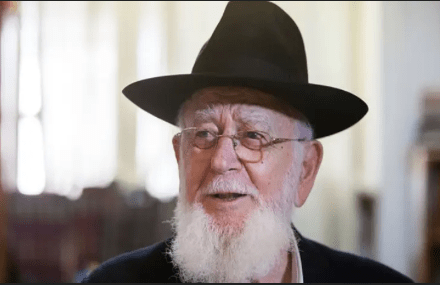





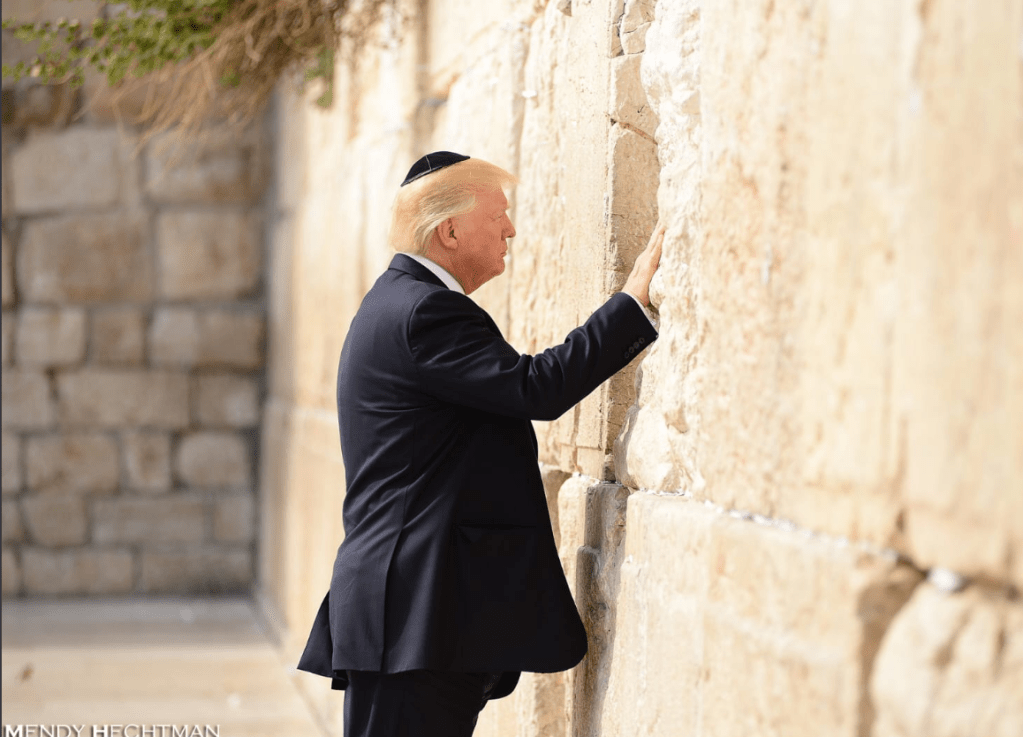




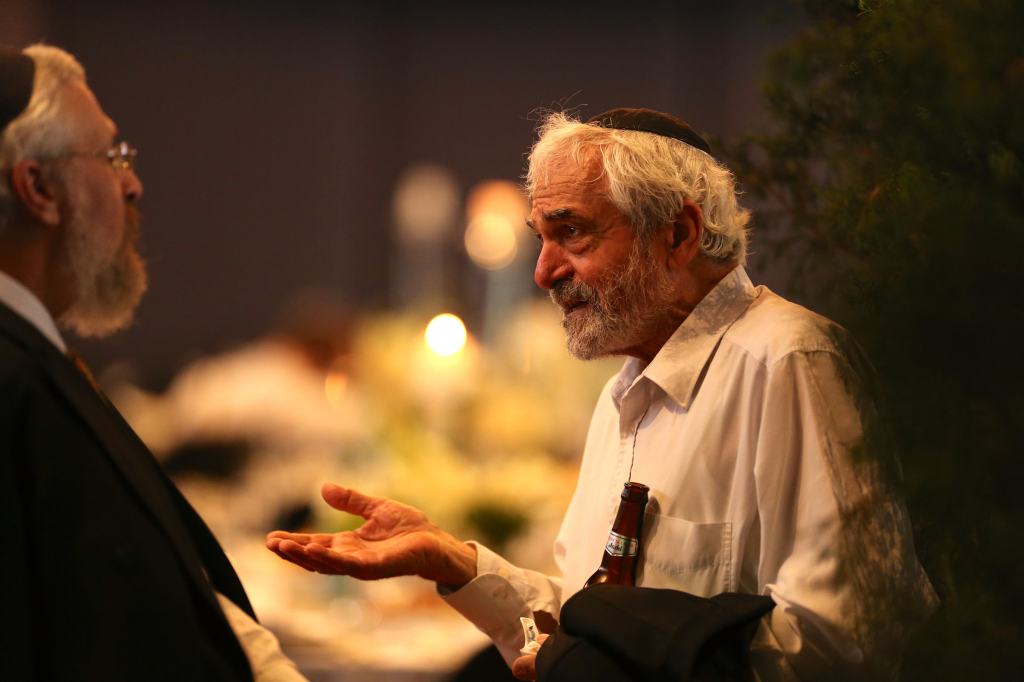






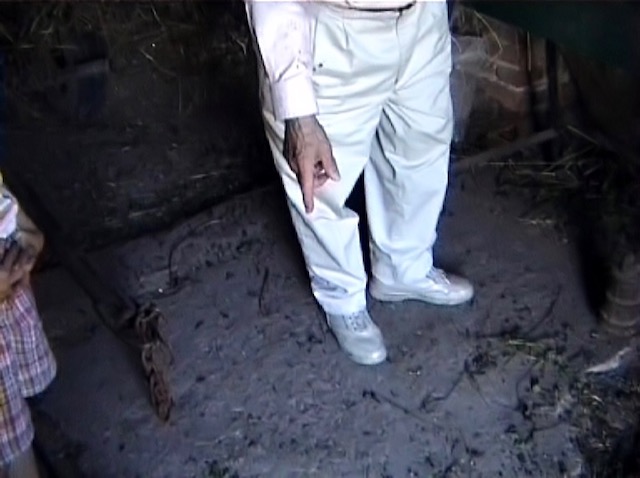
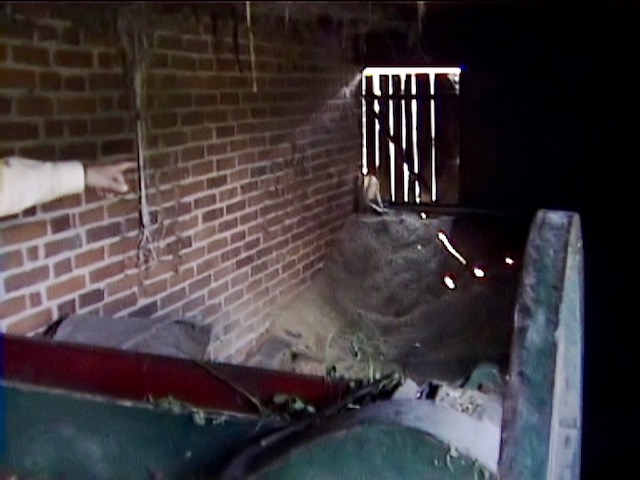
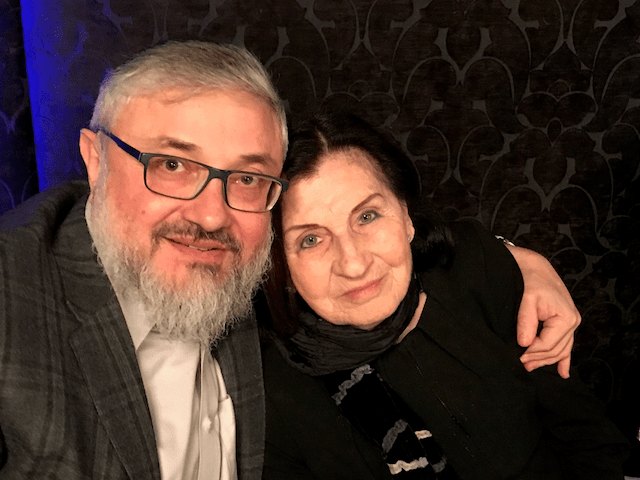


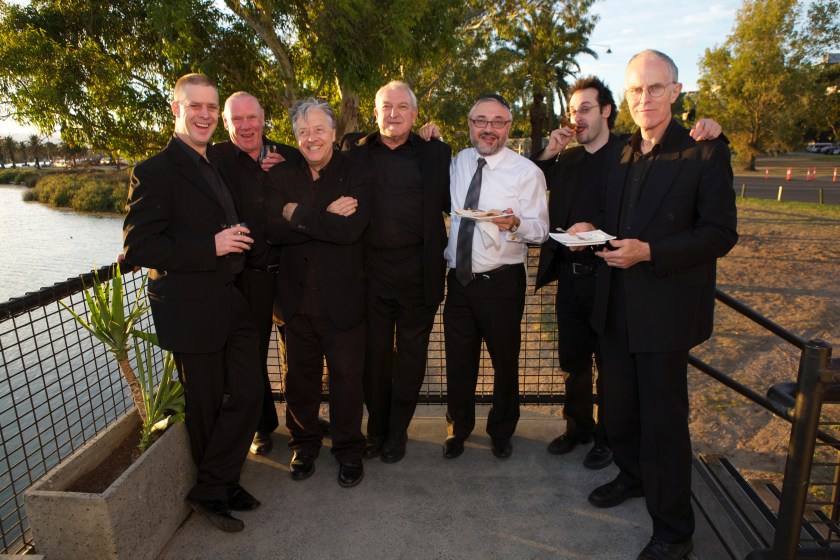














 that I came across this idea. That background also prompted me to buy and read his biography, more recently. If you haven’t come across R Chaim David Halevi’s scholarship, I recommend it.
that I came across this idea. That background also prompted me to buy and read his biography, more recently. If you haven’t come across R Chaim David Halevi’s scholarship, I recommend it..jpg)
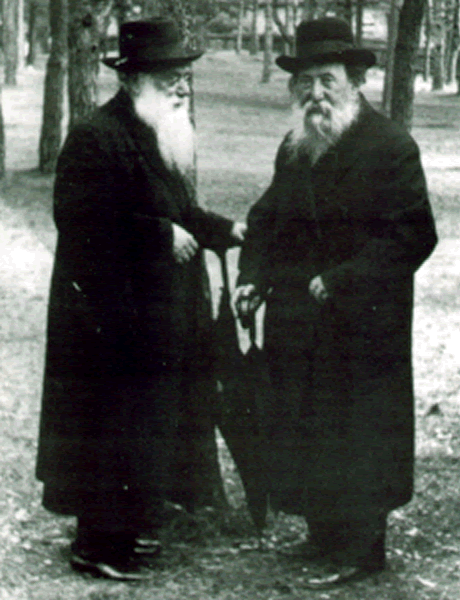



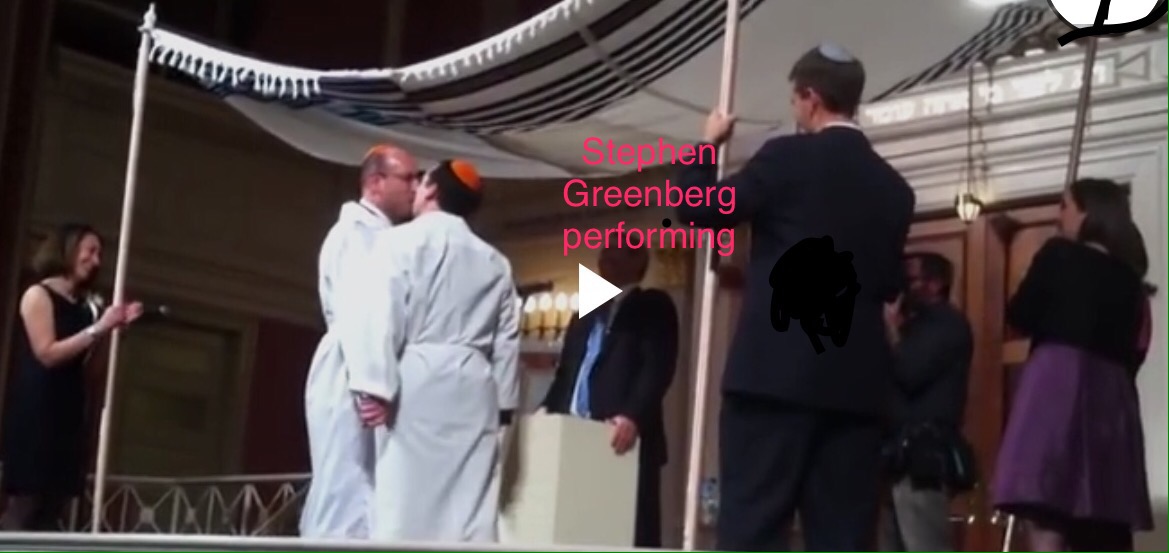
You must be logged in to post a comment.